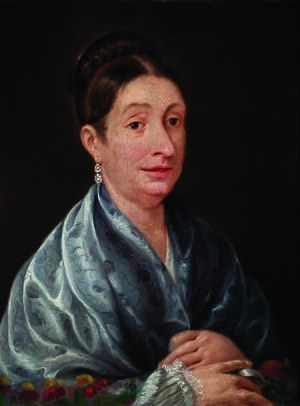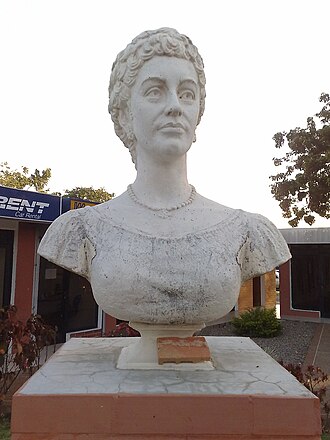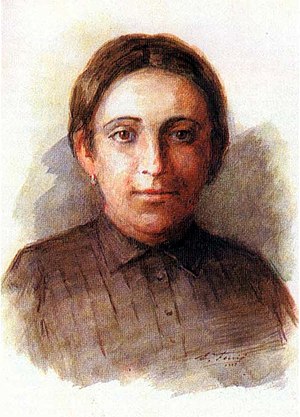Discover Your Roots
SIGN UPDiscover Your Roots
SIGN UPJosefa is a captivating female name of Spanish origin, meaning "God Will Increase." It is a timeless and elegant name that exudes strength and faith. The name Josefa has deep roots in Spanish culture and is associated with notable individuals such as Infanta Maria Josefa of Spain and Josefa Ortiz de Domínguez, a prominent supporter of the Mexican War of Independence. This name reflects a sense of divine hope and prosperity, making it a meaningful choice for parents seeking a name with spiritual significance. Its rich history and association with inspirational figures make Josefa a beautiful and impactful name that resonates with the idea of divine abundance and growth.

María Josefa Crescencia Ortiz Téllez–Girón, also known as Doña Josefa Ortiz de Domínguez or La Corregidora, was a significant figure during the Mexican War of Independence in the early 19th century. Born in Valladolid, she married Miguel Domínguez, the corregidor of Querétaro. Despite her role in managing their household and raising 14 children, Ortiz de Domínguez developed a strong empathy for the oppressed Amerindian, mestizo, and criollo communities, leading her to participate in revolutionary activities. She played a crucial part in the planning of the independence uprising and managed to warn the rebel leaders of an impending arrest. This warning ultimately led to the famous Grito de Dolores, marking the beginning of the Mexican War of Independence. However, her involvement in the conspiracy was discovered, leading to her imprisonment. After the war, she refused a position in the Mexican Empire, as it contradicted the republican ideals she had fought for. Ortiz de Domínguez's bravery and dedication to the cause of independence have cemented her as a revered figure in Mexican history and a symbol of resistance against oppression.

Josefa Venancia de la Encarnación Camejo, also known as La Camejo and Doña Ignacia, holds a significant place in the National Pantheon of Venezuela as one of the heroines of the Venezuelan War of Independence. Born into a distinguished family, Camejo's upbringing and education played a pivotal role in her involvement in the independence movement. She married Juan Nepomuceno Briceño Méndez and faced numerous challenges, including the tragic loss of her mother and the responsibility of leading a caravan to safety. Despite the hardships she endured, Camejo's unwavering dedication to the cause of independence and her remarkable leadership in various military and strategic endeavors have solidified her place in Venezuelan history.In recognition of her contributions, President Hugo Chávez symbolically incorporated Josefa Camejo into the National Pantheon on International Women's Day in 2002. Her legacy is further commemorated through various landmarks and tributes, such as the Josefa Camejo International Airport and a monument in Coro, Falcón. Additionally, she was honored by being featured on the 2 BsS bill in Venezuela. Josefa Venancia de la Encarnación Camejo's courageous and influential role in Venezuela's fight for independence continues to inspire and resonate with people across the nation.

Josefa Naval Girbés (11 December 1820 – 24 February 1893) was a Spanish Catholic member of the Secular Order of Discalced Carmelites. She dedicated her life to the spiritual development of people, particularly in the field of education. Born in Algemesi, Spain, Josefa experienced the loss of her parents at a young age and took on the responsibility of caring for her household and siblings. Despite these challenges, she pursued her spiritual calling and took a vow of virginity at a young age. Throughout her life, she worked tirelessly to educate and provide moral and spiritual formation to those around her. Her commitment to Church life and personal holiness earned her recognition, and she was beatified by Pope John Paul II in 1988.Josefa's selfless devotion and impact on the community have been widely acknowledged in Spain. Her compassionate work with cholera patients, along with her dedication to education, solidified her reputation as an esteemed educator and catechist. Her beatification process involved the recognition of her virtuous life and the authentication of miracles attributed to her intercession. Despite her passing in 1893, Josefa Naval Girbés continues to inspire and be celebrated for her remarkable contributions to society and the Church.

Josefa Ordóñez (1728 – after 1792) was a prominent actress and courtesan in 18th-century Mexico City. Born in Granada, she embarked on a successful acting career upon arriving in Mexico City in 1743 as part of an acting troupe. Known for her exceptional talent, she quickly rose to become the production manager of the Nuevo Coliseo theater, a rare accomplishment for a woman of her time. Additionally, she managed an illegal gambling casino in her home, attracting members of the Mexican elite and courting controversy with her lavish lifestyle.Ordóñez gained notoriety as a courtesan and was involved in several high-profile relationships, often causing scandal and drawing the attention of authorities. Her tumultuous personal life led to legal entanglements, including imprisonment, exile, and failed attempts at divorce. Despite these challenges, she remained a central figure in Mexico City's social circles, with her life as a courtesan becoming the subject of widespread fascination.In later years, Ordóñez continued to navigate the complexities of her personal life, facing legal battles and controversies. Her story provides a captivating glimpse into the intrigues and complexities of 18th-century Mexico City society, where her influence and notoriety left a lasting impact.

All images displayed on this page are sourced from Wikipedia or Wikimedia Commons.We use these images under their respective Creative Commons or public domain licenses. Wherever applicable, author attributions and license information are provided. If you believe an image is used incorrectly or outside its license terms, please contact us so that we can review and correct the issue.